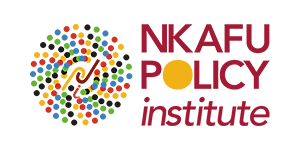
Violence in the Democratic Republic of Congo: Geopolitical implications for the Great Lakes region
Date : May 16, 2024
Time : 03 to 04 pm
Venue : Online Zoom (Register now)
Background
The Democratic Republic of Congo (DRC) has experienced decades of war and violence, stemming from a complex web of historical, political, economic, and social factors. The conflict’s origins can be found in the aftermath of the 1994 Rwandan Genocide as a result of a major spill over of ethnic wars in neighbouring Rwanda, where millions of Rwandans fled into the DRC, including rebel groups (1). This major conflict which started in 1996, when Rwanda invaded Zaire to support rebel groups, has set off a series of wars involving several regional actors including Uganda, Angola, Namibia, Zimbabwe, etc. Since then, the war has continued unabated, with the M23 rebel group and over 250 local and 14 foreign-armed groups active in eastern DRC, each motivated by different grievances and interests.
The presence of these armed groups has resulted in numerous violations of human rights, population displacements, and a serious humanitarian crisis particularly in North Kivu, South Kivu and Ituri provinces. An estimated six million people have been killed and more than six million people have been internally displaced since the war started in 1996 in eastern DRC (2). The conflict has received several interventions from regional and international bodies such as SADC, ICGLR, EAC, AU, UN, amongst others. Even though these efforts have resulted in a number of important peace agreements, the conflict keeps persisting, threatening to spill over into neighbouring countries in the Great Lakes region, and posing a threat to regional stability (3). It is against this backdrop that the Nkafu Policy Institute is organizing this webinar to raise awareness about the ongoing violence in the DRC and its geopolitical implications for the Great Lakes region and to propose potential solutions and strategies for addressing the ongoing violence.
2. Objective of the webinar
Specifically, the webinar will serve as platform to:
- Examine ongoing conflict dynamics between all actors in view of shaping adapted policy recommendations to inform key policy makers and facilitate decision making on the
- Analyse the conflict’s geopolitical consequences for the Great Lakes
- Raise awareness on growing humanitarian concerns in the region to mitigate possibilities of a profound and complex humanitarian
- Assess the various regional and international responses in addressing the conflict and humanitarian crisis in the DRC
- Propose possible pathways to resolve the ongoing violence in the DRC and to promote regional
3. Target Audience
The event targets the African Union, RECs and RMs, UN institutions, development partners, local CSOs, experts from the fields of peace and security and the international community.
4. Event Format
The event will take place online, via zoom with moderated panel discussions by experts and will be streamed live on Foretia Foundation’s social media platforms.
5. Expected Outcome
- Deepened understanding of conflict dynamics in the Great Lakes Region in view of raising early warning alerts on potential
- More adapted responses from states and international partners to address growing humanitarian concerns in the
- Actionable recommendations proposed to support ongoing peace building processes in DRC and in the Great Lakes
6. Event Date and Time
The event will take place on Thursday 16th May, 2024 from 3 to 4pm, Cameroon Time.
7. Organisers
This event is organised by the Peace and Security Division of the Nkafu Policy Institute a think tank at the Denis and Lenora Foretia Foundation.
8. Contact details
Email: [email protected] / Tel: (+237) 22 31 15 84 / 654 86 72 54
9. Panelists
Mr. Victor Idumba Mr. Damien Mouzoun
Ms. Vanessa Aboudi (Moderator)


Leave A Comment